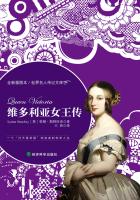And certainly the doctrine of Papal Infallibility presents to the reason a sufficiency of stumbling-blocks. In the fourteenth century, for instance, the following case arose. John XXII asserted in his bull 'Cum inter nonnullos' that the doctrine of the poverty of Christ was heretical. Now, according to the light of reason, one of two things must follow from this--either John XXII was himself a heretic, or he was no Pope. For his predecessor, Nicholas III, had asserted in his bull 'Exiit qui seminat' that the doctrine of the poverty of Christ was the true doctrine, the denial of which was heresy. Thus if John XXII was right, Nicholas III was a heretic, and in that case Nicholas's nominations of Cardinals were void, and the conclave which elected John was illegal-- so that John was no Pope, his nominations of Cardinals were void, and the whole Papal succession vitiated. On the other hand, if John was wrong--well, he was a heretic; and the same inconvenient results followed.
And, in either case, what becomes of Papal Infallibility?
But such crude and fundamental questions as these were not likely to trouble the Council. The discordant minority took another line. Infallibility they admitted readily enough, the infallibility, that is to say, of the Church; what they shrank from was the pronouncement that this infallibility was concentrated in the Bishop of Rome. They would not actually deny that, as a matter of fact, it was so concentrated; but to declare that it was, to make the belief that it was an article of faith--what could be more-- it was their favourite expression-- more inopportune? In truth, the Gallican spirit still lingered among them. At heart, they hated the autocracy of Rome-- the domination of the centralised Italian organisation over the whole vast body of the Church. They secretly hankered, even at this late hour, after some form of constitutional government, and they knew that the last faint vestige of such a dream would vanish utterly with the declaration of the infallibility of the Pope. It did not occur to them, apparently, that a constitutional Catholicism might be a contradiction in terms, and that the Catholic Church, without the absolute dominion of the Pope, might resemble the play of Hamlet without the Prince of Denmark.
Pius IX himself was troubled by doubts. 'Before I was Pope,' he observed, 'I believed in Papal Infallibility, now I feel it.'
As for Manning, his certainty was no less complete than his master's. Apart from the Holy Ghost, his appointment to the See of Westminster had been due to Pio Nono's shrewd appreciation of the fact that he was the one man in England upon whose fidelity the Roman Government could absolutely rely. The voice which kept repeating 'Mettetelo li, mettetelo li' in his Holiness's ear, whether or not it was inspired by God, was certainly inspired by political sagacity. For now Manning was to show that he was not unworthy of the trust which had been reposed in him. He flew to Rome in a whirlwind of Papal enthusiasm. On the way, in Paris, he stopped for a moment to interview those two great props of French respectability, M. Guizot and M. Thiers. Both were careful not to commit themselves, but both were exceedingly polite. 'I am awaiting your Council,' said M. Guizot, 'with great anxiety. It is the last great moral power and may restore the peace of Europe.' M. Thiers delivered a brief harangue in favour of the principles of the Revolution, which, he declared, were the very marrow of all Frenchmen; yet, he added, he had always supported the Temporal Power of the Pope. 'Mais, M. Thiers,' said Manning, 'vous etes effectivement croyant.' 'En Dieu,' replied M. Thiers.
The Rome which Manning reached towards the close of 1869 was still the Rome which, for so many centuries, had been the proud and visible apex, the palpitating heart, the sacred sanctuary, of the most extraordinary mingling of spiritual and earthly powers that the world has ever known. The Pope now, it is true, ruled over little more than the City itself-- the Patrimony of St.
Peter-- and he ruled there less by the Grace of God than by the goodwill of Napoleon III; yet he was still a sovereign Prince, and Rome was still the capital of the Papal State; she was not yet the capital of Italy. The last hour of this strange dominion had almost struck. As if she knew that her doom was upon her, the Eternal City arrayed herself to meet it in all her glory.
The whole world seemed to be gathered together within her walls. Her streets were filled with crowned heads and Princes of the Church, great ladies and great theologians, artists and friars, diplomats and newspaper reporters. Seven hundred bishops were there from all the corners of Christendom, and in all the varieties of ecclesiastical magnificence in falling lace and sweeping purple and flowing violet veils.
Zouaves stood in the colonnade of St Peter's, and Papal troops were on the Quirinal. Cardinals passed, hatted and robed, in their enormous carriage of state, like mysterious painted idols. Then there was a sudden hush: the crowd grew thicker and expectation filled, the air. Yes! it was he! He was coming! The Holy Father! But first there appeared, mounted on a white mule and clothed in a magenta mantle, a grave dignitary bearing aloft a silver cross. The golden coach followed, drawn by six horses gorgeously caparisoned, and within, the smiling white-haired Pio Nono, scattering his benedictions, while the multitude fell upon its knees as one man. Such were the daily spectacles of coloured pomp and of antique solemnity, which so long as the sun was shining, at any rate-- dazzled the onlooker into a happy forgetfulness of the reverse side of the Papal dispensation-- the nauseating filth of the highways, the cattle stabled in the palaces of the great, and the fever flitting through the ghastly tenements of the poor.















